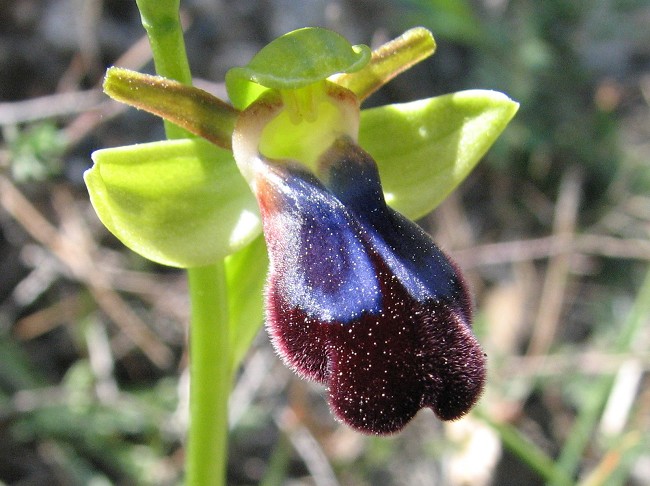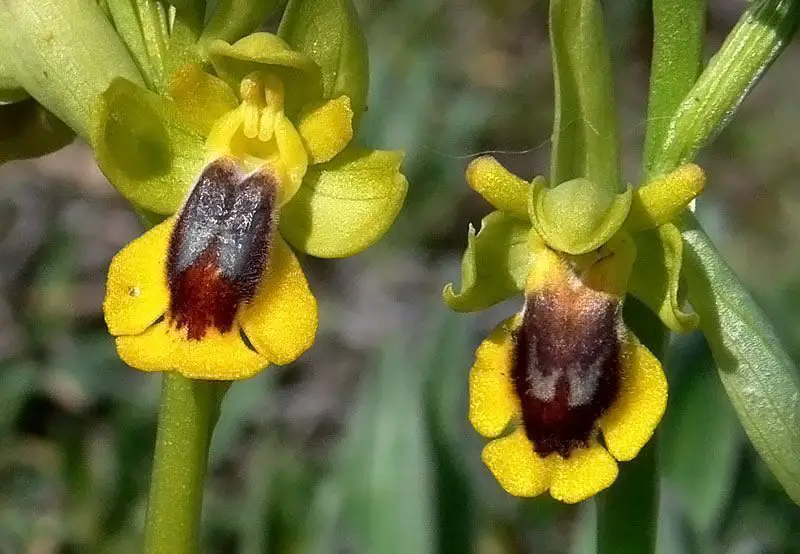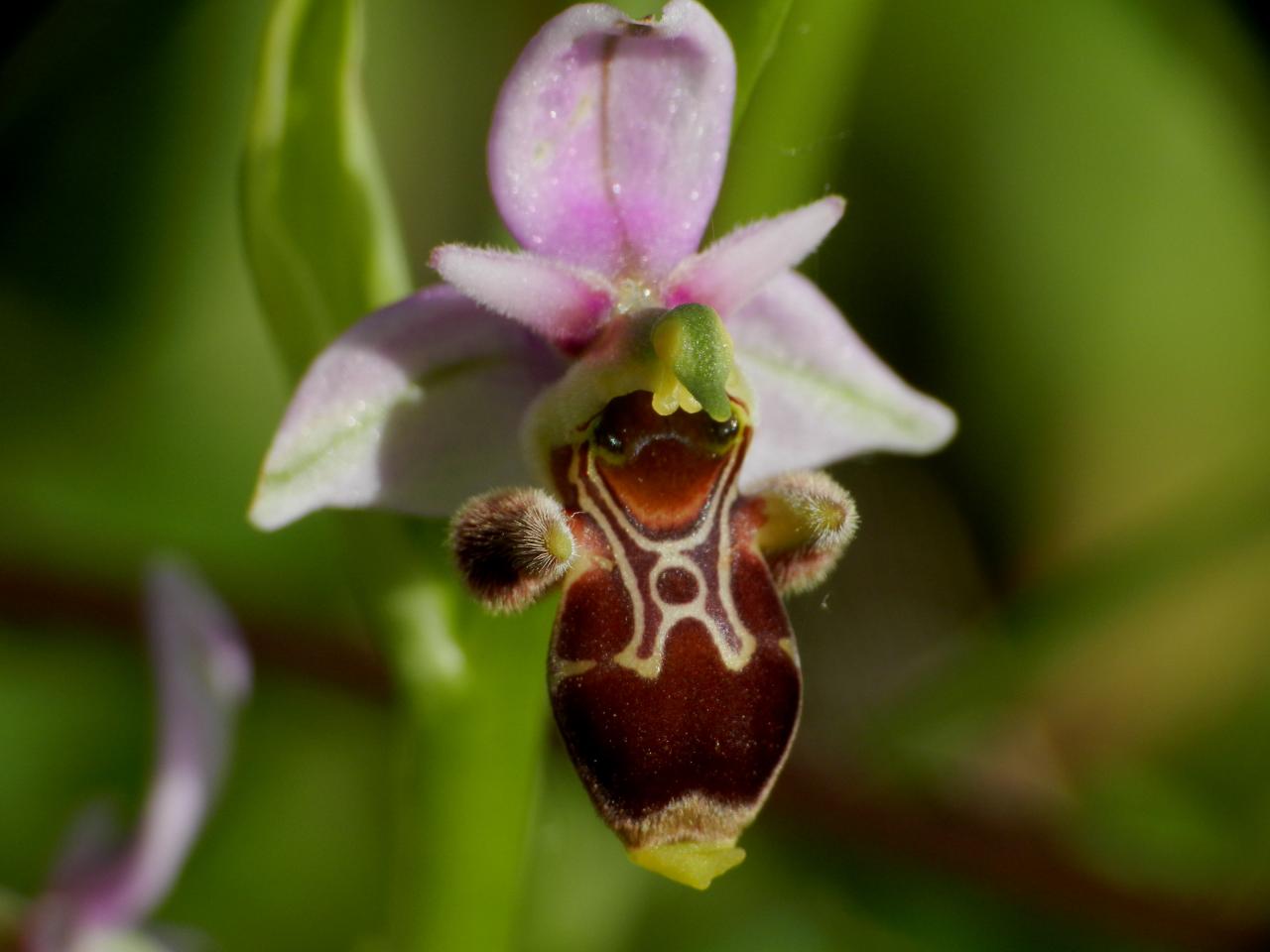THE SPIRIT OF PLANTS - MIMICRY
Orchids are plants considered among the most advanced. Some of them,
such as those of the genus Ophrys, quite common in Europe, have
evolved to attract their pollinators, often specific, to give themselves a
better chance of pollination. They were able to change their flowers to make
them resemble the females, so as to attract the male who will do, unwittingly
the pollination work.
The scheme is very elaborate:
The flower releases aromas that copy to perfection the insect
pheromones, those that allow the male to locate the female from long distance.
When the male is close enough, it must be able to visually recognize the
female. The flower is disguised as a female, that is, it dresses the colors and
patterns that the male will recognize at first glance.
Now, the male must land on the flower. And to make sure it does, and
nothing makes it doubt, the flower has a very distinctive pilosity of the
female.
The trap is in place and works perfectly. The male is fooled until the
last moment. It will therefore pay its respects to Madame, thinking do its duty
survival of its own species. In reality, it performs an essential work for the
survival of the orchid.
It is a superb example of adaptation of a species to its environment. In
fact, orchids are among the plants that have implemented the most sophisticated
schemes. It's fantastic and wonderful. Many scientists and botanists are
interested in orchids precisely because of the sophistication of their
processes of reproduction and pollination. Darwin also wrote an entire book on
orchids "The various contrivances by which orchids are fertilised by
insects".
Here are some examples, among the many that exist
Here are some examples, among the many that exist
Ophrys fusca
Ophrys sphegodes
Ophrys apifera
Ophrys lutea
Ophrys scolopax
Ophrys insectifera
But try to look at it a little closer, from an unscientific observer
perspective. Let's reflect on the genesis of such a process.
Can you imagine the complexity of the mechanisms that the plant had to
put into service to accomplish this feat?
For it is not a simple process. Put yourself in the place of a stationary
plant, without vision, without capacity for analysis, and try to adapt to such
a complex situation.
Let's dissect the steps it had to pass.
First, it had to determine, "to become aware" of its
pollination problem and its complexity.
Then it had to develop, "to imagine" a plan, a solution for
its own survival, since without pollination there is no possible descent, and
therefore there is a risk of extinction.
It had to detect, then observe its only pollinator insect, its life, its
habits.
It had to determine the pheromone that the female products, for the male
can locate it.
It had to watch the female enough to be able to know, in detail, what it
physically looks like.
Finally, for the scheme to work, it had to carry out a process of
self-transformation to mimic the insect to perfection.
It's voluntarily that I lend the plant a will, a thought, a reflection
which it probably has not, or at least not in the way that we, humans are today
able to understand it.
It must be admitted that it is a process of great complexity, which
activates several senses like smell, sight, touch, plus an incredible capacity
for observation, reflection and imitation, than are normally awarded only to
animals.
Who said that the plants do not think?
Is there a form of plant intelligence?
It is obvious that plants have no brain, so they have no cognitive and
sensory capacities of the same type as animals. Yet it is sure that complex
mechanisms, obeying the imperative to solve serious problems are set up by
plants. Many scientists and their teams are working to understand the
mechanisms of communication and adaptation of plants to situations in which
their environment set them.
I don't pretend to answer questions around metaphysics, but I will share
some discoveries, some extremely surprising scientific works, and quite
exciting.
It's not to exclude, that this could profoundly change your vision of
the plant world. It is even possible that you cannot, after that, look plants
the same way.

.jpg)



Aucun commentaire:
Enregistrer un commentaire